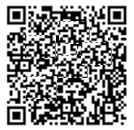[1] 綦佩妍, 李雪明, 戴俊, 等. 口岸输入性传染病风险识别的现状及优化[J]. 中国国境卫生检疫杂志, 2023, 46(5): 435-441.
[2] 谷思雨, 强讷, 李天韵, 等. 新发传染病全球大流行的挑战与跨部门综合防控策略[J]. 中国寄生虫学与寄生虫病杂志, 2024, 42(3): 279-285.
[3] 李梅, 李亚萍, 翟嵩, 等. 新发传染病的教学应对策略[J]. 中国医学教育技术, 2019, 33(3): 346-348+352.
[4] 吴迎, 吴春蕾, 傅广华, 等. 情景模拟教学在产科临床教学中的应用效果[J]. 临床医学研究与实践, 2023, 8(31):195.
[5] 马猛, 杨方方, 吴德庆, 等. 情景模拟教学在临床技能培训中的作用[J]. 现代医院, 2023, 23(9): 1445-1447.
[6] 国家传染病医学中心撰写组, 李兰娟, 张文宏, 等. 疟疾诊疗指南[J]. 中国寄生虫学与寄生虫病杂志, 2022, 40(4): 419-427.
[7] 张芳, 王小恒, 董开忠, 等. 新发传染病:人类健康的威胁[J].保健医学研究与实践, 2024, 21(2): 153-156.
[8] LEE JM, JANSEN R, SANDERSON KE, et al.Public health emergency preparedness for infectious disease emergencies: a scoping review of recent evidence[J]. BMC Public Health, 2023, 23(1): 420.
[9] 高琪. 当前疟疾形势与我国消除疟疾后的再传播风险与对策[J]. 中国热带医学, 2024, 24(1): 1-5.
[10] 李小鹏, 钟良辉, 钟渊斌, 等. 线上+线下混合式教学模式在传染病学教学中的应用探索[J/CD]. 新发传染病电子杂志, 2024, 9(3): 30-33.
[11] 朱勇喆, 段万里, 高福. 突发呼吸道传染病应急处置演练的实践与思考[J]. 热带医学杂志, 2022, 22(6): 891-892.
[12] 盛秋菊, 丁洋, 张翀, 等. 新冠疫情对高校传染病教学带来的挑战与发展机遇[J]. 中国中医药现代远程教育, 2021, 19(10): 180-182.
[13] 陈健, 谭宏涛, 董靖竹, 等. 情景模拟教学法在临床基本技能培训中的应用研究[J]. 中国医院管理, 2024, 44(8): 77-79.
[14] YANG S, LI R, YAN S, et al.Risk assessment of imported malaria in China: a machine learning perspective[J]. BMC Public Health, 2024, 24(1): 865.
[15] 王梦婷, 孙柳君, 侯学红, 等. 任务驱动教学法结合交互式临床实境案例教学系统在临床思维训练中的应用探索[J]. 卫生职业教育, 2024, 42(13): 53-56.
[16] 李小丽, 邹洋. 进修医师《热带医学与热带病》教学模式探索与实践[J]. 医学教育管理, 2018, 4(4): 318.
[17] NAKAO M, KOMAKI G, YOSHIUCHI K, et al.Biopsychosocial medicine research trends: Connecting clinical medicine, psychology, and public health[J]. Biopsychosoc Med, 2020, 14(1): 30.
[18] LIU Y, WANG P, BAI Y.The influence factors of medical disputes in Shanghai and implications-from the perspective of doctor, patient and disease[J]. BMC Health Serv Res, 2022, 22(1): 1128.
[19] 梁意敏, 钟炜, 管玉婷. 应用情景模拟联合案例分析法提高住培学员门急诊医患沟通能力[J]. 中国继续医学教育, 2022, 14(24): 49-53.
[20] 朱芬芬, 闻彩芬, 张慧. 高仿真教学远期效果及影响因素的质性研究[J]. 护理研究, 2020, 34(15): 2740-2742.
[21] 赵玉华, 舒建中, 陶文强, 等. 情景模拟教学在神经内科住培中的应用[J]. 中国继续医学教育, 2022, 14(13): 77-81. |



